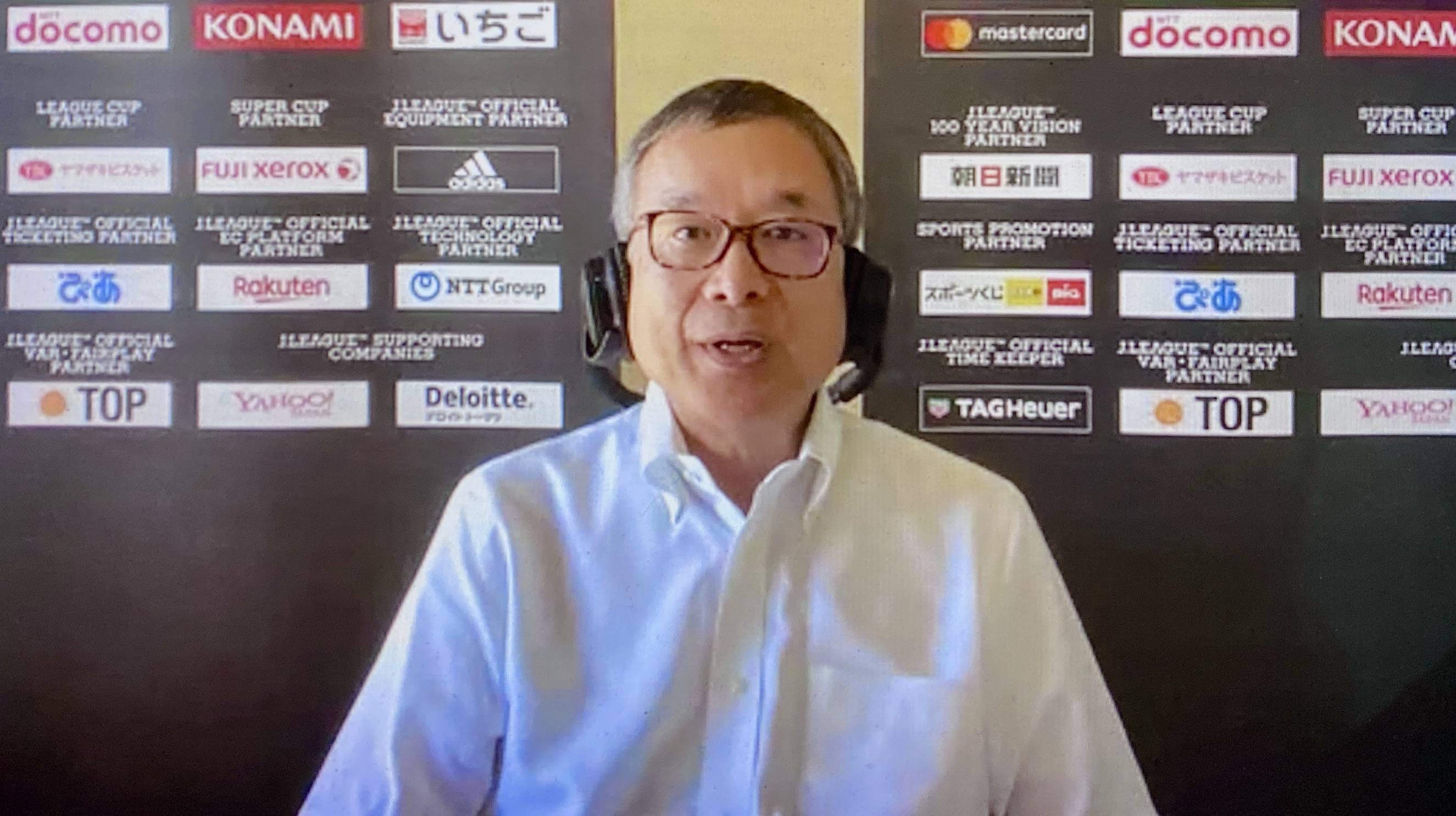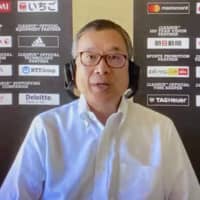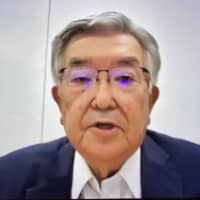Both Nippon Professional Baseball and the J. League intend to proceed with games even when they discover that a player or team official has tested positive for COVID-19, the heads of the two circuits said after their 13th joint task force on Tuesday.
NPB and the J. League have administered PCR tests for players, coaches and staff on a monthly and biweekly basis, respectively. But some teams have arranged for tests on their own and could potentially face difficult decisions on holding contests when a positive test emerges but contact tracing has not yet been completed.
While the decision to recognize an incident of close contact is made by local health centers, they are not always in a position to rapidly test and screen teams on short notice — leading the two leagues to err on the side of games taking place if stakeholders believe safety can be assured.
Current coronavirus guidelines used by both leagues do not require games to be called off in the event of a positive test or confirmed incidents of close contact.
NPB Commissioner Atsushi Saito stressed, however, that it does not mean that the circuits would “ignore” the instructions and advice from the health care centers.
“We’ll keep doing our best (to prevent infections and the spread of the virus),” Saito said. “We’ve accumulated data about the virus, so we’ll do the best we can while consulting our medical panel members such as (medical panel leader) Professor (Mitsuo) Kaku, and will proceed to play games.”
On Aug. 1, the Fukuoka SoftBank Hawks announced that outfielder Yuya Hasegawa tested positive and postponed their contest against the Seibu Lions on the next day. On Sunday, one of NPB’s umpires was announced to have tested positive for the virus.
The J. League has had several players test positive over the last two weeks, forcing the postponement of two games. On Tuesday, Sagan Tosu revealed that manager Kim Myung-hwi has been infected.
J. League Chairman Mitsuru Murai said on Monday that he believes matches can go on by carefully excluding those who are in close contact with those who have been infected or are even suspected of being in close contact with someone who has tested positive.
“It is impossible for the health care centers to adjust to our schedules, so that requires us to host our matches based on our own decisions,” Murai said. “But if around five people were to be infected, meaning a situation considered to be a potential cluster infection, we recognize that it would be difficult to proceed to play the game.”
Murai said that going forward his league would consider the use of antigen tests, which are cheaper and easier to administer.
Kaku said that the task force’s medical panel has not made a recommendation on increasing the frequency of PCR tests, but thinks that the issue will be brought up at some point in the future.
The next task force meeting is scheduled for Aug. 24.
Kaku said that the most important thing is for teams to make sure they are able to trace the activities of players and staff in order to be able to conduct contact tracing once positive cases are discovered, adding that both leagues also needed to build stronger relationships with local health centers to avoid conflicts or misunderstandings.
“You can’t ask for perfection,” Kaku said. “You have to recognize that there is no guarantee anyone can secure safety. You have to make sure that the teams keep recording the activities (of players and staff) and make comprehensive decisions. I don’t think that you can secure complete safety when it comes down to this disease.”




















With your current subscription plan you can comment on stories. However, before writing your first comment, please create a display name in the Profile section of your subscriber account page.